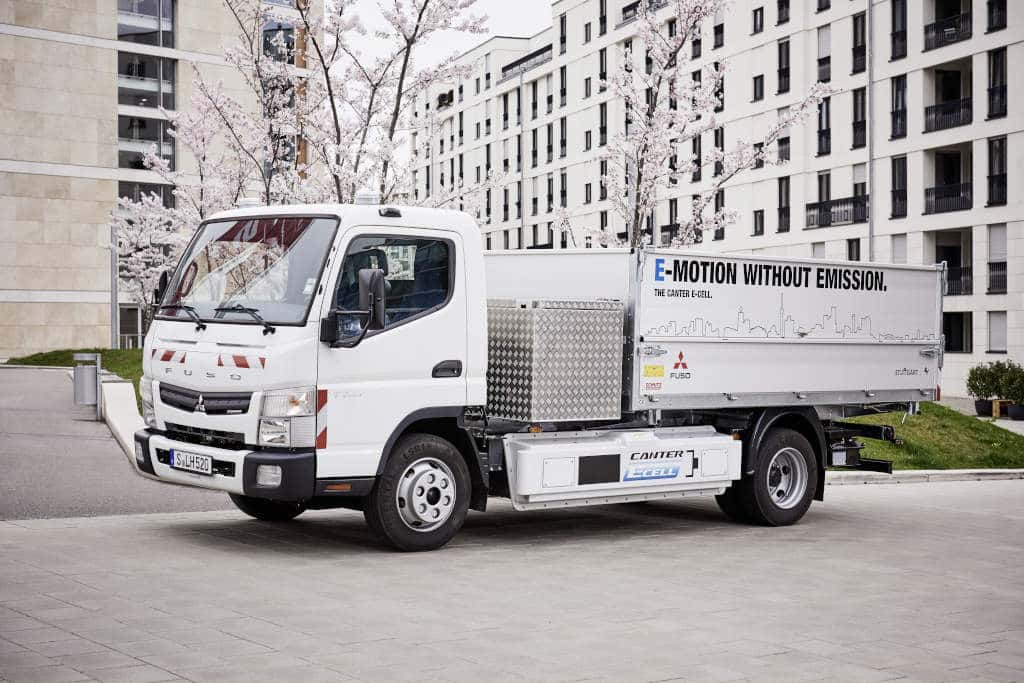German automaker Daimler has announced that it is launching the first fleet test for emission-free, Fuso Canter E-Cell electric trucks in Germany. The Daimler Truck branch invested EUR 2.5 billion in 2014 and 2015 into research and development, with the focus on connectivity, safety and drive efficiency, and EUR 40 million has been invested in the development of electric driving so far.
Over the next 12 months, the Municipality of Stuttgart will test four, six-ton Fuso Canter E-Cells in an everyday working environment. Two of the vehicles will be equipped with hydraulic tipper bodies for deployment in road construction and landscaping, and two vehicles with box bodies will be assigned to municipal furniture transport and waste disposal operations. Another Canter E-Cell will carry out parcel deliveries in urban traffic for the Hermes Co.
“Today’s combustion engine is highly efficient, eco-friendly and, above all, clean. In long-distance transport, it will remain the only option for a long time to come,” says Wolfgang Bernhard, member of the board of management at Daimler. “In urban short-radius distribution, a partial switch to electric trucks will become technically feasible and economically viable within a few years’ time. With this fleet test, we are making a small yet important contribution to urban mobility in Stuttgart. Daimler Trucks is pushing ahead with the further development of this technology. Together with the Municipality of Stuttgart and the Hermes Co., we are taking a key step towards market maturity today.”
During the initial yearlong test of the Fuso Canter E-Cell in Portugal from June 2014 to June 2015, eight vehicles were in service with customers in Lisbon. With ranges of over 100 kilometers, the vehicles exceeded the average daily distance covered by many trucks in light-duty, short-radius distribution, according to Daimler.
On the basis of the prevailing costs of diesel and electricity during the test period in Portugal, operating costs were lowered by up to 64% in comparison with a conventional diesel truck. This saved an estimated EUR 1,000 for every 10,000 kilometers driven.







